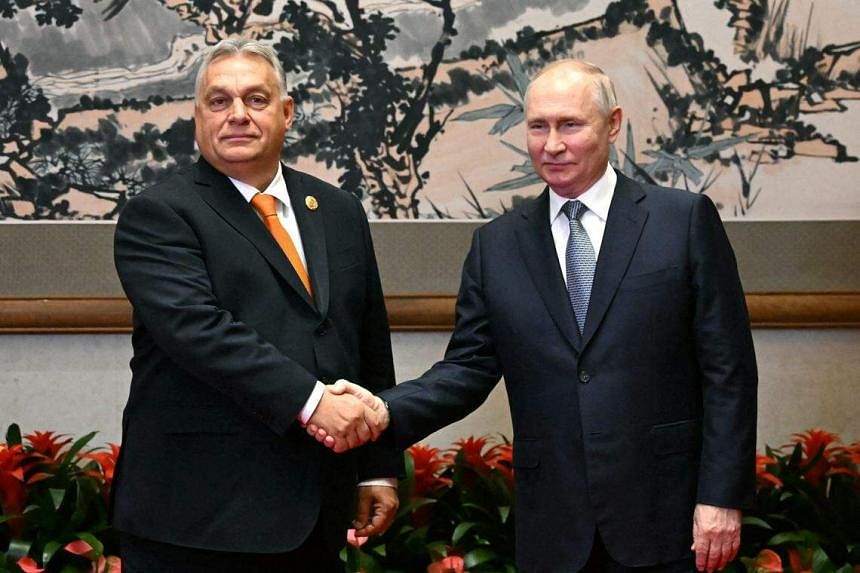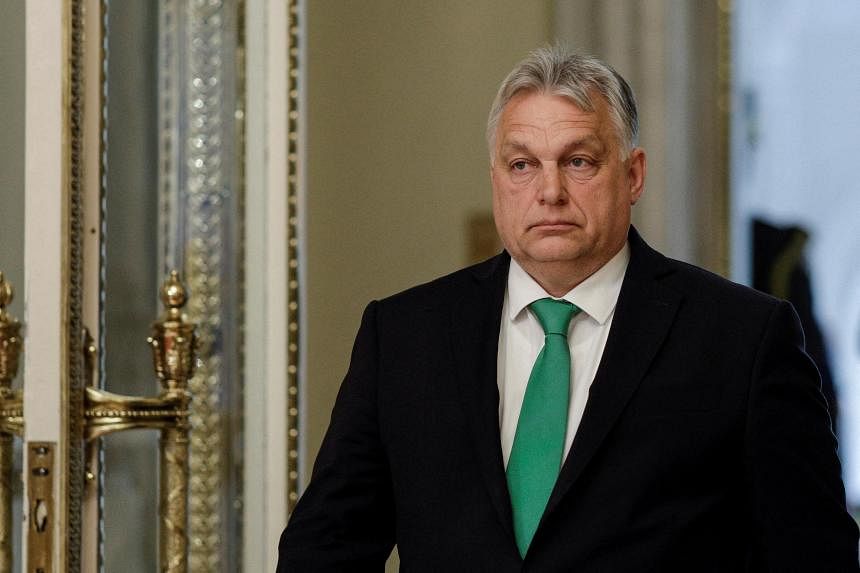BUDAPEST - Entities close to Hungarian Premier Viktor Orban covertly took part in the buyout of the Euronews channel, according to a joint investigation by Hungarian, French and Portuguese media.
Portugal-based investment fund Alpac Capital bought a majority stake in the struggling media company in 2022, reportedly for about €170 million (S$246 million).
The sale was approved by the French government.
At least a third of the funds came from sources linked to Mr Orban, Hungarian investigative website Direkt36, French daily newspaper Le Monde and Portuguese weekly magazine Expresso revealed late on April 11.
A Hungarian investment fund, Szechenyi Funds, contributed €45 million, the report says, citing internal documents.
A 64-page preparatory presentation obtained by Direkt36 suggests that political reasons were involved in the decision.
One slide detailing Szechenyi Funds’ vision for Euronews states “building cooperation with top universities to mitigate left-wing ideology and bias/one-sidedness” as one of the goals.
Euronews said in a statement that it “does not know the details of the controlling shareholdings in the company” but it “contests and denies any idea or suggestion regarding editorial interference in its news mission”.
It said its Budapest bureau has continued to work in full independence over the past two years.
An insider source quoted by the investigative website said it was obvious the order to finance the investment came from “high up”. The source said those making the investment were instructed that nothing was to be made public.
The Hungarian government’s main communication partner company, New Land Media, also provided a long-term loan of €12.5 million to a local subsidiary of Alpac Capital involved in the takeover, its owner Gyula Balasy confirmed to Direkt36.
In response to a request from AFP, Mr Balasy said the loan was “useful and profitable”, but he declined to give more details.
Szechenyi Funds did not respond to a request for comment.
In an e-mail to AFP, Mr Orban’s press chief, Mr Bertalan Havasi, said the Hungarian government “doesn’t know anything” about the deal.
Speculation about the nationalist leader’s possible involvement surfaced earlier, as the head of Alpac Capital, Mr Pedro Vargas David, is the son of a former European Parliament member, Mr Mario David, a former adviser to and personal friend of Mr Orban.
Hungary’s nationalist premier had previously denied links to the Euronews deal, saying his right-wing Fidesz party “does not conceive plans for a world empire”.

Since Mr Orban’s return to power in 2010, many independent media outlets in Hungary have either gone out of business or been bought by his business allies and turned into pro-Fidesz organs.
Euronews bills itself as Europe’s leading international news channel. It says its broadcasts can be accessed in more than 400 million homes in 160 countries.
Shifting its base from Lyon, France, to Brussels, the channel cut almost 180 positions.
Launched in 1993 by about 20 European channels, Euronews originally broadcast from Lyon in 15 languages with an editorial staff of 400 journalists.
Euronews journalists interviewed by Le Monde reported no editorial influence on their Hungary coverage, and the channel’s coverage of European issues does not appear to have changed, the paper said.
Unions, however, are pointing at advertising contracts signed with countries like Azerbaijan or Saudi Arabia, saying they influence content. AFP

